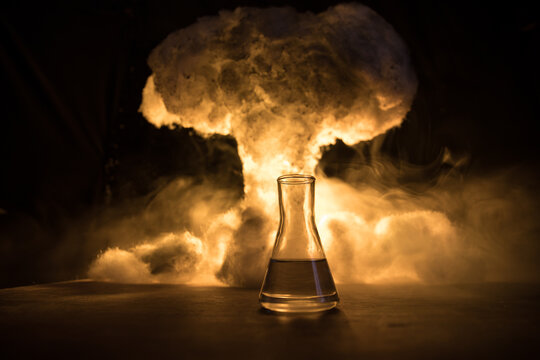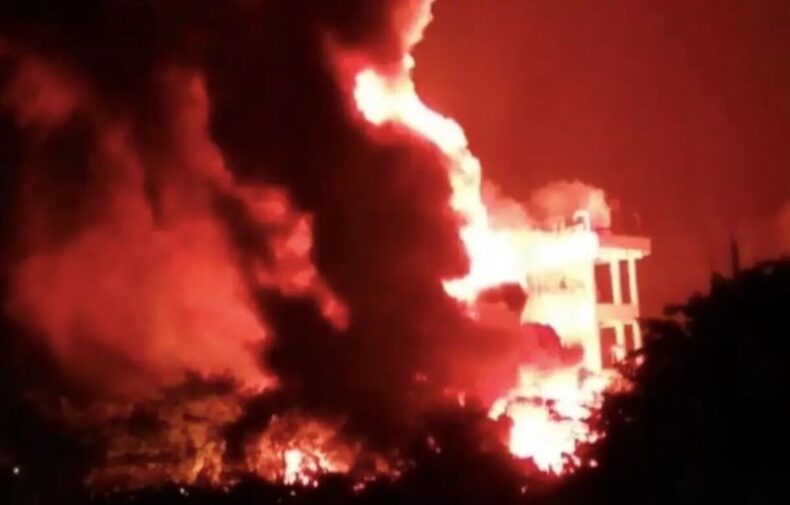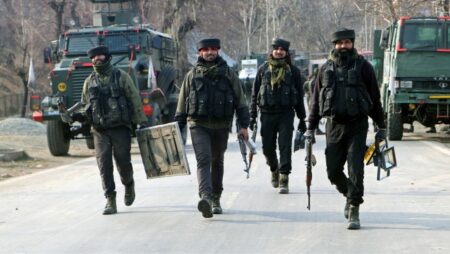A private pharma lab in Visakhapatnam’s Atchutapuram Special Economic Zone witnessed a devastating incident when a reactor explosion led to a massive fire outbreak. The mishap occurred at Sahithi Pharma Private Limited, causing panic among the workers present.

Two individuals were injured in the blast, and their condition is reported to be critical. The surrounding area was enveloped in thick smoke as firefighters rushed to the scene with three fire tenders to combat the flames.
Action taken
Upon receiving the news of the fire, both the police and additional fire tenders swiftly arrived at the site. The Superintendent of Police, Murali Krishna, stated that the fire originated from the sudden reactor blast.
Two severely injured victims were immediately transported to a nearby hospital for urgent medical treatment. SP Murali Krishna also announced that a case would be filed to investigate the circumstances surrounding the incident, including any possible negligence on the part of the management.

Efforts to control the fire and conduct rescue operations were underway with the combined efforts of multiple fire tenders and police teams. District Fire Officer Lakshman Rao confirmed that eight fire tenders had already arrived at the scene, with an additional four en route.
SP Murali Krishna revealed that 35 workers were on duty during the incident, of which 28 managed to escape safely while seven sustained injuries. The SP assured that every effort was being made to bring the fire under control, estimating that it might take approximately two hours to extinguish it completely. The injured individuals were promptly transferred to the hospital, and fortunately, no casualties had been reported thus far.
What does this mean?
Reactor blasts in pharma labs pose significant risks and can lead to catastrophic consequences. These incidents, like the one recently witnessed in a private pharma lab in Visakhapatnam, highlight the potential dangers associated with the handling of reactive substances and the need for stringent safety measures in such facilities.
Reactor explosions occur when the pressure or temperature within the reactor vessel exceeds its design limits, resulting in a sudden release of energy and the generation of intense heat. This can trigger a chain reaction, leading to fires, toxic gas emissions, and severe damage to the surrounding infrastructure.
The consequences of reactor blasts are particularly grave in pharmaceutical laboratories due to the presence of hazardous chemicals and sensitive equipment. Such explosions can endanger the lives of workers and cause injuries ranging from burns to respiratory problems. In worst-case scenarios, they can result in fatalities.

To prevent such incidents, pharma labs must adhere to strict safety protocols. This includes thorough risk assessments, appropriate training for personnel handling reactive substances, and regular inspections of equipment and facilities. It is also crucial to maintain and calibrate safety devices, such as pressure relief valves and temperature sensors, to ensure their proper functioning.
In the event of a reactor blast, prompt response is essential. Firefighting personnel and emergency services should be trained and equipped to handle such situations effectively. Evacuation plans should be in place, and workers must be familiar with emergency procedures to ensure their safety.
Additionally, investigations into reactor blasts are necessary to determine the cause of the explosion and identify any lapses in safety protocols or management negligence. Lessons learned from these incidents can be used to implement preventive measures and improve safety standards in pharma labs across the industry.
Ultimately, preventing reactor blasts in pharma labs requires a comprehensive approach that encompasses robust safety measures, diligent adherence to protocols, and a commitment to continuous improvement. By prioritizing safety, the risks associated with handling reactive substances can be minimized, protecting the well-being of workers and preventing potential disasters.













